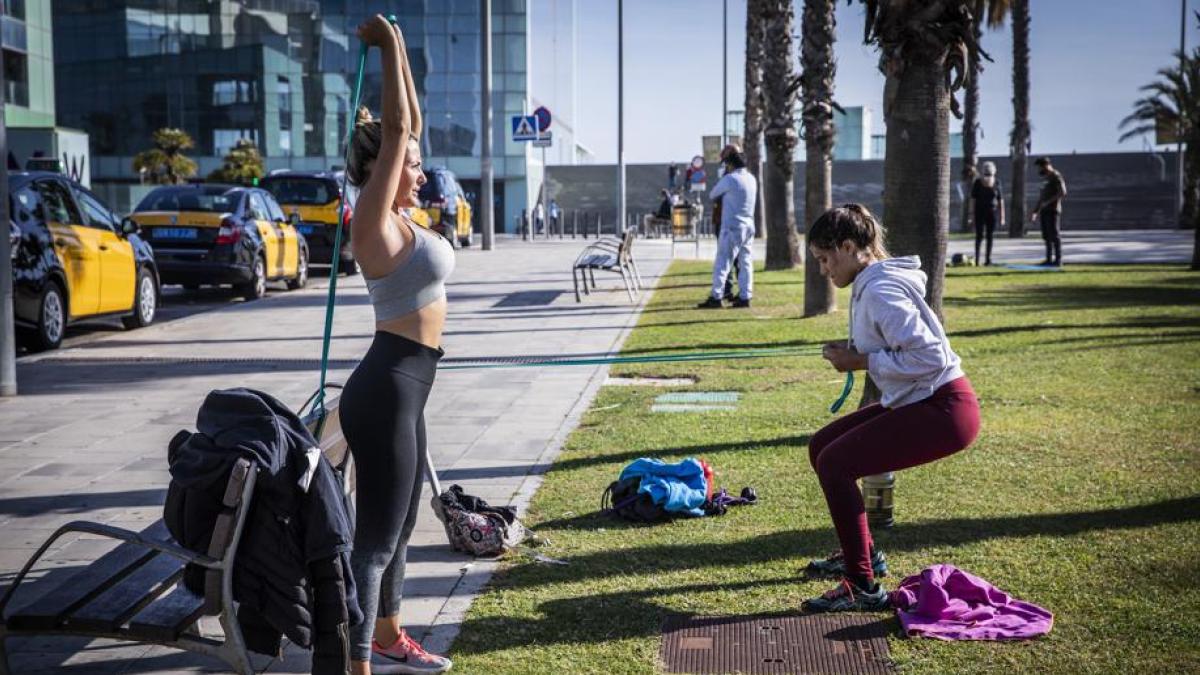Few are surprised to see people, regardless of age, doing some type of physical activity. And not just on weekends. Every day, at all hours, incorporated into the daily routine. The regular use of sneakers has clearly contributed to this.
More physical activity and, also, more careful with what they eat (which does not mean that they do it well). The prevailing social spirit is committed to a diet that is as balanced as possible, with the presence of vegetables, legumes, fish and fruits, even if what the body only asks for is eating a steak. Does everyone get it? Obviously not, but it seems that citizens have adopted that healthy dogma.
Spaniards and Portuguese, the most concerned about aging and physical deterioration
The change that Spanish society has undergone in terms of health care and well-being in recent decades is more than remarkable. In fact, Spain is in the top positions not only in the practice of physical activity, but also in following a healthy diet, they are among those that carry out the most health check-ups and those that are most involved in promoting social relationships. as a source of well-being.
This is indicated by Stada Health Report, the tenth edition of a survey carried out among 46,000 people from 23 European countries, including Spain, between the months of February and March. The report reveals that Spaniards are the Europeans in the top positions when it comes to taking care of their health: after Finland, they are the most physically active: 62% say so, only four points below the Finns and two above the Italians, in third position (the European average is 50%).
Another healthy habit that Spaniards have adopted is a varied and balanced diet. According to this work, half of Europeans claim to follow a healthy diet (49%), with the Netherlands and Spain in the lead (68%), followed by Italy (67%). And the benefits are clear: 83% say that eating in a balanced way makes them feel good physically and 50%, better mentally.
Czechs (56%) and Germans and Slovaks (48%) lead the way in getting checkups.
Furthermore, 41% of Spaniards perform preventive health checkups, seven points more than the European average, although the possibilities for improvements are still notable. At the top of having checkups are Czechs (56%) and Germans and Slovaks (48%).
Furthermore, almost 40% of Spaniards consider that the time they spend with their friends and loved ones is a clear investment for their general well-being, 9 points more than the European average.
Why do Spaniards lead health self-care? The report does not go into assessing these issues, but it does highlight the concern of Spaniards about aging and its consequences. In this sense, Spaniards are among the Europeans most concerned about becoming dependent people (73%) when they age, only surpassed by the Portuguese (74%). This concern, although it is more marked in those over 55 years of age (87%), is also experienced by younger people (69% of those between 35 and 54 years old).
The physical decline typical of age (74%) and neurodegenerative diseases (69%) are other concerns of Spaniards
The physical decline typical of age (74%) and neurodegenerative diseases such as Alzheimer’s and Parkinson’s (69%) are other of the main concerns associated with aging in Spain. And almost 60% are afraid of suffering from heart disease.
Having said all this, the data in this report shows positive Spaniards in almost all fields. Thus, while it shows that the satisfaction of Europeans with their respective health systems decreases to 56% of the population, 18 percentage points less than in 2020, in Spain it remains at 71% of citizens, placing it among the top five countries in Europe, behind Belgium, Switzerland, Denmark and Austria.
Among the aspects they value most are access to doctor and pharmacist advice (55%), access to medication (49%) and preventive health services (47%).
Almost 7 in 10 Europeans say they trust conventional medicine
And, although dissatisfaction with health systems has decreased in Europe, trust in medicine, understood as an act based on science, has not. Almost 7 out of 10 Europeans say they trust conventional medicine; in Spain and Finland the percentage exceeds 80%, being the strongest defenders.
Feeling of loneliness
In a hyperconnected world, many people say they feel alone in Spain. This is indicated by 48% of Spaniards, a feeling that is worse in the younger population, with a figure of 65% among those under 35 years of age. Among the reasons that explain this feeling of loneliness, the lack of time for greater social contact, overwork, the loss of loved ones or excessive time on social networks or video games stand out. And to the question about what aspects should change so that loneliness and other mental health problems related to it stop being a problem in society, the answer in those under 35 years of age is to better reconcile work and family life (60% ) and improve the economic situation, something pointed out by 51% of those surveyed.
